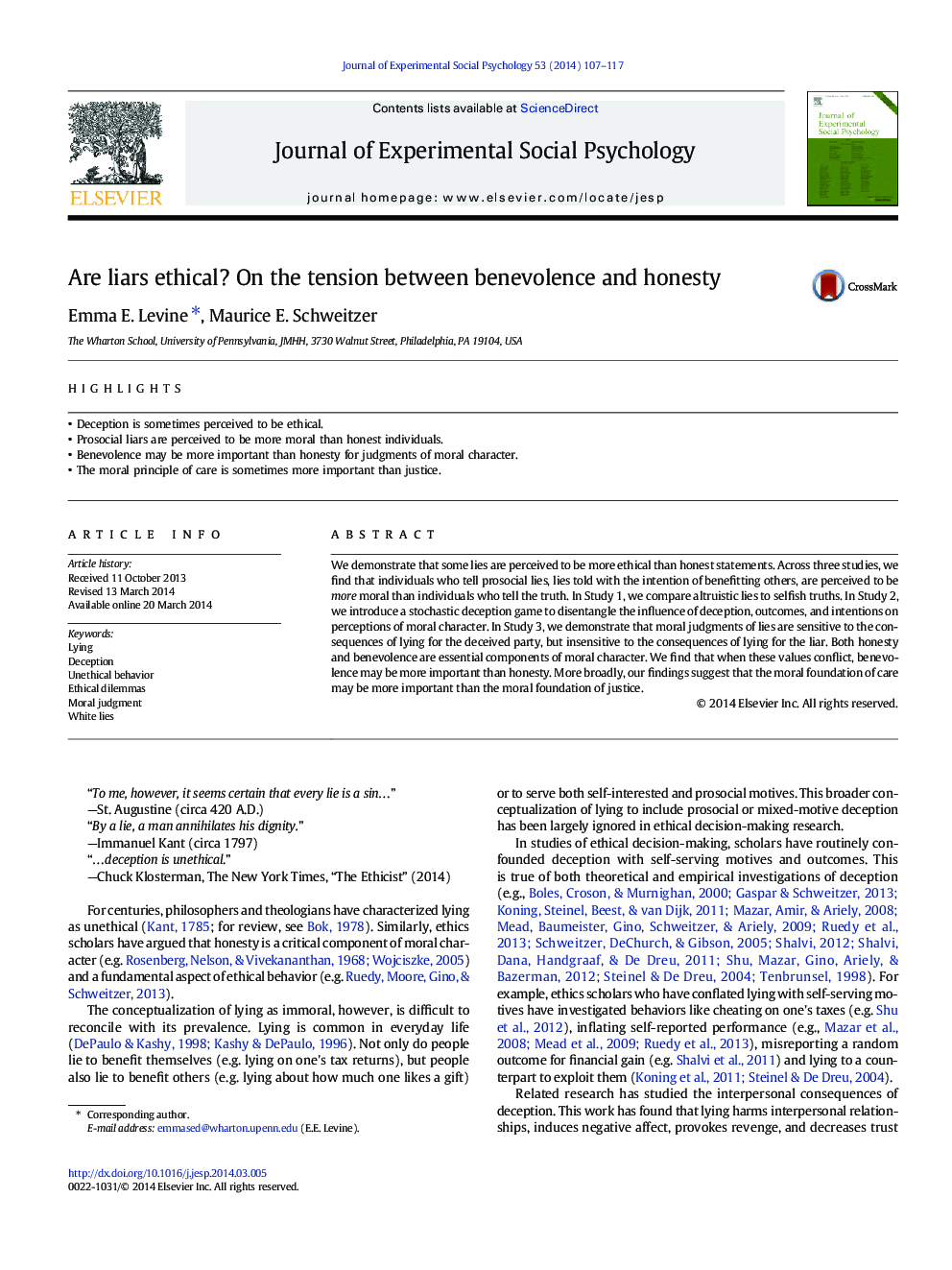| Article ID | Journal | Published Year | Pages | File Type |
|---|---|---|---|---|
| 947832 | Journal of Experimental Social Psychology | 2014 | 11 Pages |
•Deception is sometimes perceived to be ethical.•Prosocial liars are perceived to be more moral than honest individuals.•Benevolence may be more important than honesty for judgments of moral character.•The moral principle of care is sometimes more important than justice.
We demonstrate that some lies are perceived to be more ethical than honest statements. Across three studies, we find that individuals who tell prosocial lies, lies told with the intention of benefitting others, are perceived to be more moral than individuals who tell the truth. In Study 1, we compare altruistic lies to selfish truths. In Study 2, we introduce a stochastic deception game to disentangle the influence of deception, outcomes, and intentions on perceptions of moral character. In Study 3, we demonstrate that moral judgments of lies are sensitive to the consequences of lying for the deceived party, but insensitive to the consequences of lying for the liar. Both honesty and benevolence are essential components of moral character. We find that when these values conflict, benevolence may be more important than honesty. More broadly, our findings suggest that the moral foundation of care may be more important than the moral foundation of justice.
